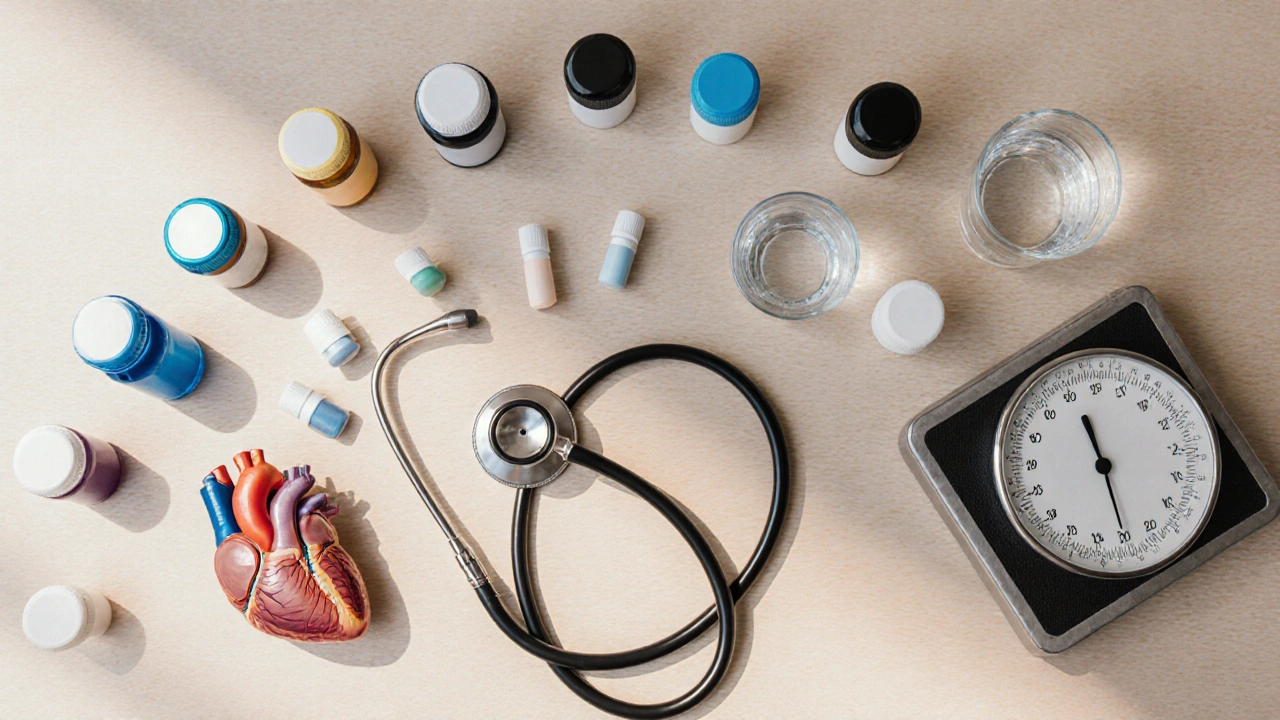

When dealing with diabetes medication side effects, the unwanted reactions that can arise from drugs used to control blood sugar. Also known as drug adverse effects in diabetes, they can range from mild stomach upset to serious health risks. Diabetes medication side effects are something every patient should watch. This page breaks down the most frequent problems, why they happen, and what you can do about them.
Metformin, a first‑line oral drug that lowers glucose production in the liver is praised for its effectiveness, yet it often brings gastrointestinal complaints like nausea, abdominal cramping, or diarrhea. For people with reduced kidney function, the drug can accumulate and raise the risk of a rare but serious condition called lactic acidosis. Adjusting the dose, taking the tablet with food, or switching to an extended‑release form often eases the discomfort.
Insulin, the hormone replacement that drives glucose into cells saves lives, but it carries a high chance of hypoglycemia. Skipping meals, exercising more than planned, or miscalculating the dose can push blood sugar dangerously low, leading to shakiness, sweating, or loss of consciousness. Modern insulin pens and pumps include dose calculators and alerts, yet regular blood‑glucose checks and a clear emergency plan remain essential.
GLP‑1 agonists, injectable drugs that boost insulin release and slow stomach emptying are popular for their weight‑loss benefits, but many users experience nausea, vomiting, or decreased appetite in the first weeks. Rarely, pancreatitis can develop, so any severe abdominal pain warrants immediate medical attention. Understanding these trade‑offs helps you decide whether the cardiovascular and weight advantages outweigh the digestive side effects.
SGLT2 inhibitors, a class that blocks glucose reabsorption in the kidneys can lower blood pressure and aid weight loss, yet they increase the odds of urinary tract infections, genital yeast infections, and, in rare cases, a serious condition called euglycemic ketoacidosis. Staying well‑hydrated, practicing good genital hygiene, and monitoring for signs like foul‑smelling urine or unexplained fatigue can keep problems from spiraling.
Overall, diabetes medication side effects encompass three major groups: metabolic disturbances (like hypoglycemia or ketoacidosis), gastrointestinal issues (nausea, diarrhea, constipation), and infection‑related problems (UTIs, yeast infections). Each drug class tends to cluster around one or two of these groups, which means recognizing the pattern can point you to the culprit quickly. For example, if you notice frequent stomach cramps after starting a new oral agent, Metformin is the usual suspect.
Effective monitoring starts with regular blood‑glucose logs, but it doesn’t stop there. Routine blood tests for kidney function, liver enzymes, and electrolytes catch early signs of drug‑induced organ stress. Elderly patients and those with chronic kidney disease often need lower starting doses and slower titration to avoid accumulation. Keep a symptom diary—note the time, dosage, food intake, and any side effects—to share with your healthcare provider during each visit.
Practical steps can minimize most side effects: take Metformin with meals, split the dose, or switch to an extended‑release tablet; use a rapid‑acting insulin analog for meals and a long‑acting basal insulin for steady coverage; start GLP‑1 agonists at the lowest dose and increase weekly; stay hydrated and urinate frequently when on SGLT2 inhibitors. If a side effect persists beyond a couple of weeks, discuss alternatives with your doctor rather than enduring discomfort.
Below you’ll find a curated list of articles that dive deeper into each medication class, compare risk profiles, and offer tips on how to adjust therapy safely. Whether you’re just starting a regimen or looking for ways to fine‑tune an existing plan, these resources give you concrete, actionable insight to keep your diabetes management on track while reducing unwanted reactions.

A detailed, SEO‑friendly comparison of Empagliflozin versus dapagliflozin, canagliflozin, metformin, and liraglutide, covering efficacy, heart and kidney benefits, side effects, cost and prescribing tips.